
The Ancient and Accepted Scottish Rite of Freemasonry, commonly known as simply the Scottish Rite, is one of several Rites of Freemasonry. A Rite is a progressive series of degrees conferred by various Masonic organizations or bodies, each of which operates under the control of its own central authority. In the Scottish Rite the central authority is called a Supreme Council.

Alan Cumming is a Scottish actor. His London stage appearances include Hamlet, the Maniac in Accidental Death of an Anarchist, the lead in Bent, The National Theatre of Scotland's The Bacchae, and Samuel Beckett's Endgame at The Old Vic, opposite Daniel Radcliffe. On Broadway, he has appeared in The Threepenny Opera, as the master of ceremonies in Cabaret, Design for Living, and a one-man adaptation of Macbeth.

Charles Lucien Jules Laurent Bonaparte, 2nd Prince of Canino and Musignano, was a French naturalist and ornithologist. Lucien and his wife had twelve children, including Cardinal Lucien Bonaparte.

Sidney Arthur Lumet was an American film director, producer, and screenwriter with over 50 films to his credit. He was nominated five times for the Academy Award: four for Best Director for 12 Angry Men (1957), Dog Day Afternoon (1975), Network (1976), and The Verdict (1982) and one for Best Adapted Screenplay for Prince of the City (1981). He did not win an individual Academy Award, but did receive an Academy Honorary Award, and 14 of his films were nominated for Oscars.

The Catholic Encyclopedia: An International Work of Reference on the Constitution, Doctrine, Discipline, and History of the Catholic Church is an English-language encyclopedia published in the United States and designed to serve the Catholic Church. The first volume appeared in March 1907 and the last three volumes appeared in 1912, followed by a master index volume in 1914 and later supplementary volumes. It was designed "to give its readers full and authoritative information on the entire cycle of Catholic interests, action and doctrine".
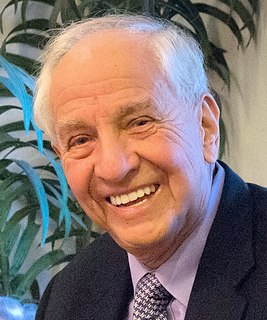
Garry Kent Marshall was an American filmmaker and actor. He started his career in the 1960s writing for The Lucy Show and The Dick Van Dyke Show before he developed Neil Simon's 1965 play The Odd Couple for television in 1970. He gained fame for creating Happy Days (1974–1984), Laverne and Shirley (1976–1983), and Mork and Mindy (1978–1982). He is also known for directing Overboard (1987), Beaches (1988), Pretty Woman (1990), Runaway Bride (1999), and the family films The Princess Diaries (2001) and The Princess Diaries 2: Royal Engagement (2004). He also directed the romantic comedy ensemble films Valentine's Day (2010), New Year's Eve (2011), and Mother's Day (2016).
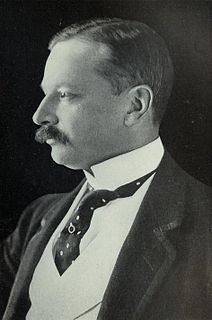
George von Lengerke Meyer was a Massachusetts businessman and politician who served in the Massachusetts House of Representatives, as United States ambassador to Italy and Russia, as United States Postmaster General from 1907 to 1909 during the administration of President Theodore Roosevelt and United States Secretary of the Navy from 1909 to 1913 during the administration of President William Howard Taft.
Abul-Hasan Kūshyār ibn Labbān ibn Bashahri Daylami (971–1029), also known as Kūshyār Daylami, was an Iranian mathematician, geographer, and astronomer from Daylam, south of the Caspian Sea, Iran.
Christopher Lehmann-Haupt was an American journalist, editor of the New York Times Book Review, critic, and novelist, based in New York City. He served as senior Daily Book Reviewer from 1969 to 1995.
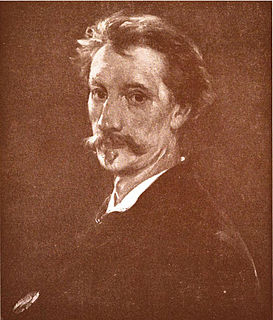
Walter Shirlaw was a Scottish-American artist.

Binay Ranjan Sen, CIE, ICS, was an Indian diplomat and Indian Civil Service officer. He served as Director General (1956–1967) of the UN's Food and Agriculture Organization (FAO). He drew on his experience as relief commissioner (1942–1943) during the Bengal famine of 1943 to build the FAO from a data-gathering bureaucracy into a major force against world hunger.

James Grant Wilson was an American editor, author, bookseller and publisher, who founded the Chicago Record in 1857, the first literary paper in that region. During the American Civil War, he served as a colonel in the Union Army. In recognition of his service, in 1867, he was nominated and confirmed for appointment as a brevet brigadier general of volunteers to rank from March 13, 1865. He settled in New York, where he edited biographies and histories, was a public speaker, and served as president of the Society of American Authors and the New York Genealogical and Biographical Society.
The Knight Kadosh is a Freemasonic degree or ceremony of initiation performed by certain branches of the Ancient and Accepted Scottish Rite of Freemasonry. It is the Thirtieth Degree of the Southern Jurisdiction of the Scottish Rite for the United States of America, and the Ancient and Accepted Scottish Rite of Freemasonry of Canada. The Northern Masonic Jurisdiction of the Scottish Rite, does not confer a degree entitled "Knight Kadosh." Instead its thirtieth degree is entitled "Grand Inspector."

Edwin H. Knopf was an American film producer, film director, and screenwriter.
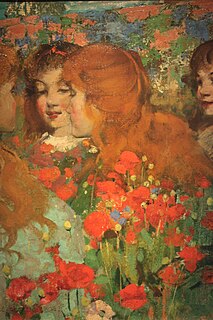
George Henry (1858–1943) was a Scottish painter, one of the most prominent of the Glasgow School.
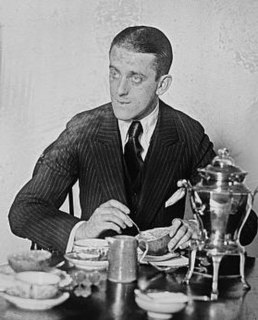
John Murray Anderson was a Canadian theatre director and producer, songwriter, actor, screenwriter, dancer and lighting designer, who made his career in the United States, primarily in New York City and Hollywood. He worked in almost every genre of show business, including vaudeville, Broadway, and film. He also directed plays in London.
Terry Hughes is a British film and television director and producer.

A brownie or broonie (Scots), also known as a brùnaidh or gruagach, is a household spirit or Hobgoblin from Scottish folklore that is said to come out at night while the owners of the house are asleep and perform various chores and farming tasks. The human owners of the house must leave a bowl of milk or cream or some other offering for the brownie, usually by the hearth. Brownies are described as easily offended and will leave their homes forever if they feel they have been insulted or in any way taken advantage of. Brownies are characteristically mischievous and are often said to punish or pull pranks on lazy servants. If angered, they are sometimes said to turn malicious, like boggarts.

James Ingersoll Wyer was an American librarian and educator. Wyer earned his bachelor's degree from the New York State Library School in 1898 and accepted a position at the University of Nebraska. In Nebraska, Wyer took leadership roles in professional library associations and published a guidebook to government documents. Wyer returned to Albany, New York, receiving his master's degree in 1905 and his PhD in 1919. He held several positions of progressive responsibility in the New York State Library and its library school.
Sir Stephen Joseph Pigott was an American-born British mechanical and marine engineer, and managing director of the Scottish shipbuilding firm John Brown & Company. He was awarded the ASME Medal in 1938.














